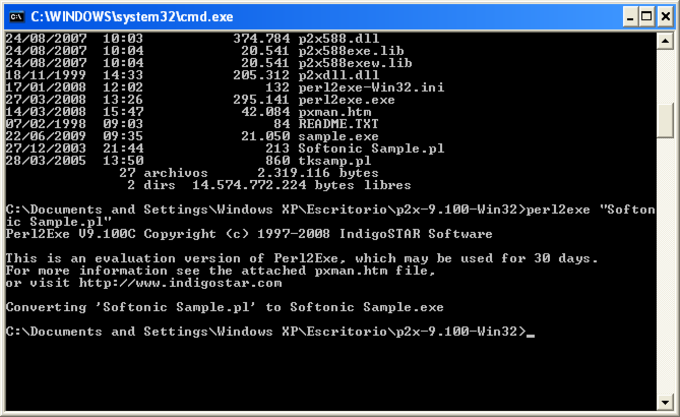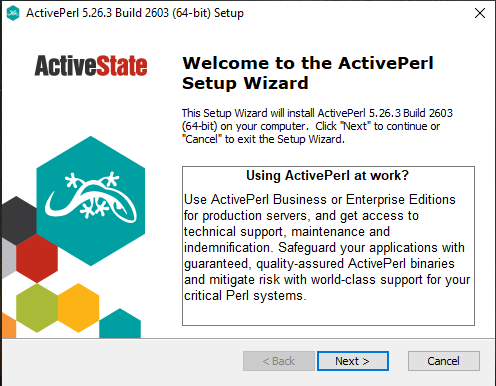

While this is generally the case, it's ALSO possible for the server to write to the client without first receiving any information.
#ACTIVEPERL 5.6 CODE#
This code does work, but it's assuming the client has to write to the server, and then the server replies. Re: Re: Activeperl 5.6 fork() doesn't friggin work

Then, replace each 'correlator_io.cpp' with your own I/O file name.Both of which eliminate the unnecessary variable. (Just open Makefile (Unix) or make.bat (Windows), and find the section that builds the correlator. To use any of these sources, you can either copy the desired I/O file to the name "correlator_io.cpp", the default, or you can modify the Makefile to use the correct file. The Siena I/O mechanism communicates with a nice event bus called Siena, which you can find by searching the internet for 'Siena event'.

The stress I/O mechanism does not actually read events, but generates random events of a few types using random numbers. correct) to make sure that it continues to work with new versions of Reflex. Next, build a file I/O version of your Correlator and make sure the output is right! Once it's been verified, you can keep the sample output (rename it from. Once you write a policy, create a long event stream file for it, including matches and near-matches of many patterns. You can use this mechanism to test your policy. We use it to make sure that the compiler and correlator engine code are working, and to keep bugs we find from coming back. The file I/O mechanism is the one used by the tests. The template file has some usual functions defined to help you port Reflex to a new I/O mechanism. The included files are 'correlator_io_file', 'correlator_io_stress', 'correlator_io_siena', and 'correlator_io_template'. We included several I/O files that you can use, or you can create your own. Using Alternative I/O Sources / Modifying the makefile Try out as many possible outcomes as possible, and include some erroneous inputs and stress testing (floods of events). (Look mostly at the correlator tests).Īlso, take advantage of the testing system to write your own tests! The best way to make sure that the policies you write work the way you expect them to is to test them. The test set includes many examples that may help you to create a useful policy. To examine the tests, simply look at the *.in and *.out files, and look at the perl script to get an idea about what's happening. Typing 'make test' in the base folder will run the Scanner, Parser, and Correlator tests. To run the tests, type 'make test' in any folder (including the stress testing folder). One lists all of the tests in the folder (all *.in files), and the other runs the right test for each input. In each folder there are also two perl scripts. Also, for the correlator tests, *.event files are sample event streams, and *.correlator* files are correlator (rather than compiler) outputs. *.out files, if present, are the actual outputs collected for each test. *.correct files represent the corresponding correct output. Usually, these are policy files, or are some subset of policy files. The files in the test folders have regular names. Each subfolder represents a different set of tests: scanner, parser, correlator, and stress tests. You'll find all of the basic files in the top directory, with the tests below that in the 'test' directory. Reflex requires a C++ Compiler, a perl interpreter (for test scripts), and make (for unix machines). We did not try other Service Packs to determine exactly when the problem was fixed. Note for Windows: Due to an internal compiler error with MSVC's Compiler, Reflex will not work without a Service Pack. Here are the specific configurations we've tested:
#ACTIVEPERL 5.6 WINDOWS#
We have setup and used Reflex on both Windows and Unix machines.
#ACTIVEPERL 5.6 ARCHIVE#
The archive will expand to create a directory to contain all of the files. You will find the complete source files, some examples, and all of the test code included in the package. It is packaged as a tar.Z file, which means that WinZip (for Windows) or tar (for Unix) should be able to extract everything. Installing the System itself should be easy. Reflex - the Customizable Event Correlation System Reflex - the Customizable Event Correlation System


 0 kommentar(er)
0 kommentar(er)
